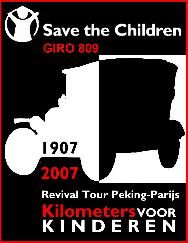Save the Children2

Education and protection for Mongolia’s children.
One-third of Mongolian children live in poverty, exacerbated by the country’s harsh winters. Malnutrition is a growing concern – an estimated 30 per cent of children aged under five in 1998 were small for their age and 10 per cent were underweight; 51 per cent of the population did not have access to safe drinking water. The nation’s achievements in literacy are jeopardised as fewer children enroll at school and more drop out early, often for economic reasons. Various studies report sig
nificant numbers of street children, most of them from families deemed ‘poor’ or ‘very poor’. Poverty, unemployment and lack of social protection has also led to growing numbers of working children who are now competing with adults for petty work.
Access to education by poor children is limited and many drop out. Buildings, heating and equipment are inadequate and the quality of teaching has suffered. The education system in Mongolia has also tended to exclude some groups of children, including those with disabilities, street children, migrant children, nomadic children and those from low-income households. The only special schools for children with disabilities, for example, are located in Ulaanbaatar city. Therefore, inclusive education is the only way to ensure that all children have access to schooling, particularly in rural areas.
Save the Children’s work in Mongolia began in 1994. Over the past decade our work has developed into new areas, building on our original objectives related to education, social development, training and research. The promotion of the rights of children is an overarching guiding principle. Our work is now focused on education and child protection and is carried out in five provinces and in Ulaanbaatar, the capital. The goal in these areas is to enable children in difficult cir
cumstances and their families to enjoy the improved local and national education and child protection services.
Children benefit the integrated child protection services that focus on quality care, community-based child protection and development. The children in difficult circumstances include abused children, children at risk of abuse, school drop-outs, children with disabilities, working children, street children and children reunified with families. Beneficiaries are difficult circumstances, parents of the children, practitioners and professionals in child care and protection agencies.
Save the Children’s education programme focuses on children aged three to seven, which we see as the most critical period in children’s development. In addition to setting up kindergartens, our work has included training teachers in child-friendly and active learning methods of teaching, in identifying and teaching children with disabilities, and in the promotion and implementation of the UN Convention on the Rights of the Child. We have also provided training materials and books for teachers, parents and children.

.thumbnail.gif)




















